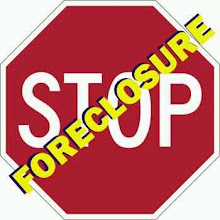This is insane!
http://frauddigest.com
http://frauddigest.com
THE MOST REVILED LAW FIRM IN FLORIDA AND
THE “UNOWNED MORTGAGE LOANS” SCHEME
By LYNN E. SZYMONIAK, ESQ. Editor, Fraud Digest
(www.frauddigest.com), AUGUST 1, 2010
In the last weekend in July, 2010, photographs of Florida lawyer David
J. Stern appeared on the internet. Stern, the owner of the largest
foreclosure law firm in Florida, was photographed sun-bathing on his
130’ foot yacht, reportedly named “Su Casa es Mi Casa” (your house
is my house). There were also photos alleged to be of Stern’s 2008
black Bugatti Veyron, a $1.85 million car and the most expensive
street legal car. “Su Casa” is not Stern’s only yacht. The Bugatti is
not Stern’s only sports car.i
Stern has likely profited more than most any other Florida lawyer from
the nation’s foreclosure crisis. The Law Offices of David J. Stern
represent most major banks in foreclosures and bankruptcies. Stern’s
firm is one of the largest working for Lender Processing Services, Inc.,
the Jacksonville-based company that specializes in “default
management.” According to an article in the Tampa Tribune, the firm’s
revenues grew to $260 million as a result of its foreclosure work.
In addition to his law firm, Stern also heads DJSP Enterprises, Inc., a
publicly-traded corporation formed in early 2008.ii According to DJSP
Enterprises, the company is the largest provider of processing
servicesiii for the mortgage and real estate industries in Florida and
one of the largest in the United States. “Processing services” sounds
like a benign activity, but an examination of some of the documents
prepared by Stern’s businesses shows otherwise.
Stern employees regularly prepare and sign mortgage assignments to
residential mortgage-backed trusts in cases where the trusts cannot
produce the original assignments from the lenders to the trust. These
documents are necessary for the trusts to prove that they have the
right to foreclose.
These assignments must be signed by an officer or authorized
representative of the bank or mortgage company that sold the
mortgage to the trust or to the securities company that helped to
make the trust. Stern’s employees regularly sign as if they are such
mortgage company officers or officers of the registry service, Mortgage
Electronic Registration Services (“MERS”), without disclosing that they
are actually Stern’s employees.
When Stern’s employees sign these Mortgage Assignments, they
routinely give false information about the date the trust acquired the
mortgages. According to documents prepared by Stern, tens of
thousands of mortgages (and the income from the promissory notes
secured by the mortgages) went off the books of the previous owners
in 2004, 2005 and 2006, went into the unknown, and then appeared
on the books of mortgage-backed trusts in 2009 and 2010.
Chain-of-title is not just an issue for the buyers and sellers of
particular homes and title insurance companies. Some entity – and
most likely several entities – are claiming these mortgages and loans
as assets when regulators and investors are determining solvency and
compliance, but disavowing these same “assets” when
acknowledgement of ownership would result in responsibilities ranging
from payment of taxes to lawn mowing.
Stern employees often sign as if a bankrupt or out-of-business
company or a failed bank owned the mortgage and loan up until
foreclosure is imminent. In county recorders’ offices across the state,
the Stern-created records show that the trusts acquired mortgages
and loans on dates when no such acquisitions ever took place. The
trusts claim ownership solely to prove that they have the right to
foreclose. The date selected is arbitrary – chosen by Stern or LPS or
the mortgage servicing company. In reality, residential mortgagebacked
trusts did not rush to acquire billions of dollars in sub-prime
non-performing loans in 2008 and 2009 as these assignments falsely
state.
No one has ever asked who paid the taxes on the income from these
mortgages during the years of unknown ownership. Who claimed
these mortgages and loans as assets on their financial statements in
order to attract and keep investors? What mortgage servicing
companies charged fees for “servicing” mortgages and loans that were
“UNOWNED” for several years? What pension funds and investor
groups paid fees to mortgage servicing companies to service
“UNOWNED” loans?
Several judges in Brooklyn began asking a related question years ago.
3
In Deutsche Bank National Trust Company v. Rose Harris, Index No.
35549/07 Supreme Court of NY (Brooklyn) February 5, 2008, the
Honorable Arthur Schack wrote: “Further, the Court requires an
explanation from an officer of plaintiff DEUTSCHE BANK as to why, in
the middle of our national subprime mortgage financial crisis,
DEUTSCHE BANK would purchase a non-performing loan from
INDYMAC…” In HSBC Bank v. Valentin, 21 Misc. 3d 1124 [A]: Judge
Schack wrote:
Further, according to plaintiff’s application, the default of
defendants Valentin and Ruiz began with the nonpayment
of principal and interest due on January 1, 2007. Yet, four
months later, plaintiff HSBC was willing to take an
assignment of the instant nonperforming loan. The Court
wonders why HSBC would purchase a nonperforming loan,
four months in arrears?
In Wells Fargo v. Saint Aubin, 2009 WL 311364 (N.Y. Sup.), Judge
Schack noted:
The court needs to know if WELLS FARGO performed due
diligence in purchasing this nonperforming loan or whether
this was a device for FIRST FRANKLIN to shift its loss to
the bondholders of plaintiff's mortgage loan trust, a
collateralized debt obligation. Nobel Laureate Paul
Krugman, in his July 2, 2007-New York Times column,
“Just Say AAA,” in writing about the subprime mortgage
crisis, could have been alluding to FIRST FRANKLIN in the
instant case…
Because of the structure of mortgage-backed trusts, it is impossible in
most cases, without a subpoena, to identify the mortgages and loans
that the trust supposedly owned and the date the trust actually
acquired these assets. The weak laws regarding residential mortgagebacked
trusts and the even weaker laws regarding mortgage
assignments made a perfect storm for securities companies, mortgage
servicing companies, banks acting as trustees and foreclosure law
firms willing to do their bidding.
The Law Offices of David Stern became the leader in providing services
– and documents.
Cheryl Samons, an office manager for the Law Offices of David Stern,
4
has signed more mortgage assignments than any other Stern
employee. She has admitted in depositions that she has no personal
knowledge of the facts recited on the mortgage assignments.
According to tens of thousands of mortgage assignments signed by
Cheryl Samons and filed in county records throughout Florida:
• Wells Fargo Bank acquired thousands of mortgages from MERS in
2008, 2009 and 2010. According to these assignments, this is NOT
MERS acting as a nominee for the previous lender - the
grantor/previous owner is identified as “Mortgage Electronic
Registration Services;”
• Deutsche Bank National Trust Company, as trustee for Trusts that
closed in 2005 and 2006, acquired thousands of mortgages in 2008,
2009 and 2010 from MERS, including such acquisitions for:
Fremont Home Loan Trust, Series 2006-3;
Morgan Stanley ABS Capital 1, Inc. Trust 2006-HE4;
Morgan Stanley ABS Capital 1, Inc. Trust 2006-WMC2;
Morgan Stanley IXIS Real Estate Capital 1 Trust 2006-1;
Morgan Stanley Loan Trust 2006-HE2;
Morgan Stanley Loan Trust 2006-HE4
Morgan Stanley Loan Trust 2006-NC2;
Morgan Stanley Loan Trust 2007-1;
Morgan Stanley Loan Trust 2007-3;
Soundview Home Loan Trust 2006-3
• HSBC Bank, as trustee for Trusts that closed in 2005 and 2006,
acquired thousands of mortgages in 2008, 2009 and 2010 from MERS
including such acquisitions for:
SG Mortgage Securities Trust 2006-FRE1
• U.S. Bank, N.A., as trustee for Trusts that closed in 2005 and 2006,
acquired thousands of mortgages in 2008, 2009 and 2010 from MERS,
including such acquisitions for:
5
Bear Stearns Asset-Backed Securities 1 Trust 2006-IM1
MASTR Alternative Loan Trust 2006-HE1
MASTR Asset-Backed Securities Trust 2006-AB1;
MASTR Asset-Backed Securities Trust 2006-FRE1;
MASTR Asset-Backed Securities Trust 2006-FRE2;
MASTR Asset-Backed Securities Trust 2006-HE2;
MASTR Asset-Backed Securities Trust 2006-HE4;
SG Mortgage Securities Asset-Backed Certificates, Series 2006-FRE2
Structured Asset Investment Loan Trust 2006-4
Occasionally, Samons has forgotten to sign and date an Assignment,
but her signature (i.e., the empty line) has nonetheless been
witnessed and notarized by other Stern employees.iv On other
documents, Samons has signed over the signature line of Stern
employee Beth Cerni and, again, the signature was nonetheless
witnessed and notarized by other Stern employees.v Samons has also
signed for Stern notary Shannon Smith.
The problem with Stern’s documents goes far beyond mortgage
assignments. In 2008 and 2009, Stern’s firm filed between 4,000 and
7,000 foreclosures in Florida each month. In thousands of cases,
Stern filed these actions knowing that the banks he represented had
no documents that gave the banks standing to foreclose.
Stern’s lawyers claimed repeatedly that the bank, acting as trustee,
owned the note and mortgage, had physical possession of the note
and mortgage, and then mysteriously lost the note and mortgage.
They filed these allegations knowing that they were false, but also
knowing that the majority of homeowners in foreclosure would default.
In the cases where homeowners did object, Stern’s lawyers then
produced the assignments and necessary documents, often created by
their own staff, using the title of MERS officers.
When the Florida Supreme Court amended the rules of civil procedure
effective February 11, 2010, to require that all foreclosure complaints
be verified, the Stern lawyers ignored the new rule and continued to
6
file hundreds of non-verified foreclosure complaints.
On July 26, 2010, a civil RICO class action lawsuit was filed against
David Stern, individually, The Law Offices of David Stern, P.A. and
MERSCORP. See, Figueroa v. Merscorp, Inc., et al., Case No. 0:10-cv-
61296-CMA, United States District Court, Southern District of Florida,
Ft. Lauderdale Division. The lawsuit focuses on the fraudulent
assignments signed by Cheryl Samons. The plaintiffs are represented
by Fort Lauderdale attorney Kenneth Eric Trent.
The class action RICO lawsuit came just six days after David Stern,
DJSP Enterprises and Kumar Ahaney were named as defendants in a
class action lawsuit for violation of securities laws also filed in the
Southern District of Florida. The securities’ lawsuit seeks damages for
investors who purchased stock in DJSP Enterprises between March 16,
2010 and May 27, 2010. The lawsuit alleges that DJSP Enterprises
generates a significant amount of its revenue from flat fees earned
within the first month of a referral and that any significant decrease in
the number of referrals would materially and adversely affect its
revenues. DJSP Enterprises experienced a substantial decrease in the
number of referrals in April and May, 2010, but did not publicly
disclose the substantial slowdown until May 27, 2010. When the
substantial decrease in referrals was disclosed, the price per share of
DJSP Enterprises fell from $8.87 per share to $6.33 per share, causing
a substantial loss to shareholders.
Florida judges often take extraordinary measures to accommodate the
Law Offices of David Stern. In thousands of cases, Stern’s lawyers are
allowed to appear telephonically. In Palm Beach County, all of Stern’s
cases are assigned to be heard in the same courtroom by the same
judge so that the Stern lawyers do not have to travel from courtroom
to courtroom. Stern’s lawyers often fail to serve litigants with
pleadings and documents prior to a hearing and instead reach into
their briefcases at the hearing and deliver documents and pleadings at
the moment of the hearing. Stern lawyers frequently “find”
documents that were previously alleged to have been lost, with no
questions asked by the Courts.
David J. Stern has amassed a fortune by providing documents and
services to banks for foreclosures. The days of “anything goes” in
foreclosures in Florida seem to be numbered, however, and banks may
soon be required to account for the actions of the Stern employees.
7
i Stern’s other autos include a 2010 silver Ferrari convertible, a 2009 red Ferrari
coupe, a 2009 black Ferrari coupe, four Porsches, a 2010 white Cadillac
Escalade, a 2011 Mercedes Benz coupe, a 2008 Bentley, a 2009 Rolls Royce, a
2008 Aston Martin Vantage, a 2007 Maserati Quattroporte, as well as BMWs,
Hummers and Land Rovers.
ii Shares in DJSP Enterprises traded in January, 2010 for $13.65; at
the close of business of July 30, 2010, shares traded for $3.73.
iii According to DJSP materials: “The Company provides a wide range of
processing services in connection with mortgages, mortgage defaults,
title searches and abstracts, REO (bank-owned) properties, loan
modifications, title insurance, loss mitigation, bankruptcy, related
litigation and other services. The Company's principal customer is the
Law Offices of David J. Stern, P.A., whose clients include all of the top
10 and 17 of the top 20 mortgage servicers in the United States, many
of which have been customers of the Law Firm for more than 10 years.
The Company has approximately 1,000 employees and is
headquartered in Plantation, Florida, with additional operations in
Louisville, Kentucky, and San Juan, Puerto Rico. The Company's U.S.
operations are supported by a scalable, low-cost back office operation
in Manila, the Philippines, that provides data entry and document
preparation support for the U.S. operation.”
iv See File #3281725, Assignment of Mortgage of Ernesto Diaz, Saint
Lucie County, Florida; see, also File # 107994571, Assignment of
Mortgage, Andrea Sylvester, Broward County, Florida.
v See File #3349080, Assignment of Mortgage of Neil Pettihomme,
Saint Lucie County, Florida.












No comments:
Post a Comment